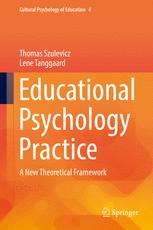

Most ebook files are in PDF format, so you can easily read them using various software such as Foxit Reader or directly on the Google Chrome browser.
Some ebook files are released by publishers in other formats such as .awz, .mobi, .epub, .fb2, etc. You may need to install specific software to read these formats on mobile/PC, such as Calibre.
Please read the tutorial at this link: https://ebookbell.com/faq
We offer FREE conversion to the popular formats you request; however, this may take some time. Therefore, right after payment, please email us, and we will try to provide the service as quickly as possible.
For some exceptional file formats or broken links (if any), please refrain from opening any disputes. Instead, email us first, and we will try to assist within a maximum of 6 hours.
EbookBell Team

0.0
0 reviewsThis book sets out a proposal for applying psychological and educational psychology concepts to improve work with children and young people. It also suggests how some of the criticism aimed at pedagogical-psychology practice can be answered.
In several respects educational psychology practice seems to be in a transition phase and could even be said to be suffering an identity crisis: educational establishments and education policy alike are looking for different skills than those the psychology profession traditionally provides, and people are generally questioning the relevance and applicability of pedagogical-psychological counseling. The book is based on the fundamental premise that good professional practice is contingent upon circumstances that allow practitioners to apply their knowledge, experience and skills in the specific encounter with a specific task. This means that the ability to act pragmatically and creatively is, and will increasingly be, an important skill not only for educational psychologists, but also for psychologists in general. In other words, psychologists must be able to contribute to tasks in new ways and new contexts when required.
Intended primarily for students of psychology, school psychologists and other professional groups that provide counseling in schools, the book is also a valuable resource for the various groups that use pedagogical-psychology tools and insights in their work with children and young people.